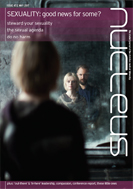In the first of this series, (1) we noted that leadership is an increasingly popular concept in our professional context. We also saw that as Christians we are all called to leadership in the healthcare sphere. But what might this look like? Whilst there are many ways to think about leadership as Christian healthcare professionals, one way is to divide it into four roles as follows (my thanks to Professor John Wyatt for these categories):
History tells us that Christians in healthcare have had tremendous influence over the centuries in all four roles. Medical specialty leaders like Thomas Sydenham and William Osler and nurses like Elizabeth Fry changed the face of medicine and nursing, benefiting millions.
Medico-political leaders like Thomas Barnardo challenged the institutions and politics of their day to change the social and institutional landscape of their (and still our) day. Nowadays members of CMF have been at the forefront of challenging attempts to change the law on assisted suicide, and many play an active role in the British Medical Association both locally and nationally. Movement leaders like Douglas Johnson founded CMF and a collaboration of medics founded the International Christian Medical and Dental Association (ICMDA) (3) as recently as the middle of the last century.
Thought leaders like John Wyatt and Peter Saunders profoundly shape the Christian response to issues of our day through their speaking and writing in particular. (4) Whilst it may seem an overwhelming, uphill task in what can often seem a dark and decaying society, we can take heart, because it only takes a small beam of light to penetrate the darkness and a small amount of salt to flavour a meal. We are called to be those who take 'out-there' leadershipseriously even though it may cost us our reputation or even our career.
The alternative is to keep your head down and 'go with the flow', but you will have missed an opportunity to 'let your light shine before others in such a way that they may see your good deeds, and glorify your Father in heaven'. (5)
Whilst we are called to influence culture, the medico-political sphere, or our specialties, history tells us that we mustn't neglect the task of fortifying the faith of those who profess faith in our communities; the task of 'in-here' leadership.
When Israel was in Babylon in exile, great importance was placed on preserving the beliefs of the community. (7) The prophet Ezekiel reminds them of God's character and plans in 36:22-23: 'This is what the Sovereign LORD says: It is not for your sake, people of Israel, that I am going to do these things, but for the sake of my holy name, which you haveprofaned among the nations where you have gone. I will show the holiness of my great name, which has been profaned among the nations, the name you have profaned among them. Then the nations will know that I am the LORD, declares the Sovereign LORD, when I am proved holy through you before their eyes'. Brother Andrew, (8) known as 'God's smuggler', was inspired by Revelation 3:2 to 'Wake Up! Strengthen what remains and is about to die'. This led him to smuggle Bibles to Christians behind the Iron Curtain. As Christians were strengthened in their faith, the foundations were laid for the church to flourish against all odds when, in many cases, freedom of religion was re-instated.
We need to preserve confidence in our faith as applied to medicine, sustaining our beliefs in our small (sometimes tiny) communities. We need to be disciples with deep roots who can withstand the anti-biblical cultural tsunami of our time. In each of the four roles we need leaders who can speak to Christian students, to nurture what we believe and firm up convictions that God's Word is true, that God's story is the story that offers a more compelling, satisfying and true account of 'life in all its fullness'. (9)
Of course, much 'out-there' leadership sets an example to others, and so also functions as leadership 'in-here', whilst 'in-here' leadership can raise up those who lead 'out-there'; they are not mutually exclusive.
As current and future leaders, let's take the call to 'out-there' and 'in-here' leadership seriously.
- movement (or organisational) leaders. These are the designated leaders of local, national and international Christian healthcare groups. They provide strategic vision for the movement and develop organisational structures to ensure that this vision is communicated clearly and ultimately accomplished.
- thought leaders. These provide intellectual and theological leadership by developing and communicating an understanding of the contemporary secular world, especially its threats and opportunities, by developing and communicating authentic and relevant Christian responses, and by engaging in defending and promoting Christian values with secular organisations, media and governments.
- medical/political leaders. These take on official leadership and managerial roles within the secular medical establishment, including medico-political activities, and use their position and influence for Christ in a secular context.
- medical specialty leaders. These develop national and international leadership in a specific medical specialty, influencing the development of the specialty, providing specialist expertise on practical and ethical issues, and providing advice and mentorship for junior trainees within the same specialty.
But before we look any deeper into these roles, it is worth considering that there are two important aspects to grasp in each role.
'out-there' leadership
History tells us that Christians in healthcare have had tremendous influence over the centuries in all four roles. Medical specialty leaders like Thomas Sydenham and William Osler and nurses like Elizabeth Fry changed the face of medicine and nursing, benefiting millions.
Medico-political leaders like Thomas Barnardo challenged the institutions and politics of their day to change the social and institutional landscape of their (and still our) day. Nowadays members of CMF have been at the forefront of challenging attempts to change the law on assisted suicide, and many play an active role in the British Medical Association both locally and nationally. Movement leaders like Douglas Johnson founded CMF and a collaboration of medics founded the International Christian Medical and Dental Association (ICMDA) (3) as recently as the middle of the last century.
Thought leaders like John Wyatt and Peter Saunders profoundly shape the Christian response to issues of our day through their speaking and writing in particular. (4) Whilst it may seem an overwhelming, uphill task in what can often seem a dark and decaying society, we can take heart, because it only takes a small beam of light to penetrate the darkness and a small amount of salt to flavour a meal. We are called to be those who take 'out-there' leadershipseriously even though it may cost us our reputation or even our career.
The alternative is to keep your head down and 'go with the flow', but you will have missed an opportunity to 'let your light shine before others in such a way that they may see your good deeds, and glorify your Father in heaven'. (5)
'in-here' leadership
That said, we are living in a post-Christian context. For example, by 2020 it is estimated that church attendance in England will be 4.1%. (6) Evangelical Christians are very much a minority group, our society is aggressive in its attacks on Christian values and we can't assume that we are going to have a prominent voice in the public square for much longer.Whilst we are called to influence culture, the medico-political sphere, or our specialties, history tells us that we mustn't neglect the task of fortifying the faith of those who profess faith in our communities; the task of 'in-here' leadership.
When Israel was in Babylon in exile, great importance was placed on preserving the beliefs of the community. (7) The prophet Ezekiel reminds them of God's character and plans in 36:22-23: 'This is what the Sovereign LORD says: It is not for your sake, people of Israel, that I am going to do these things, but for the sake of my holy name, which you haveprofaned among the nations where you have gone. I will show the holiness of my great name, which has been profaned among the nations, the name you have profaned among them. Then the nations will know that I am the LORD, declares the Sovereign LORD, when I am proved holy through you before their eyes'. Brother Andrew, (8) known as 'God's smuggler', was inspired by Revelation 3:2 to 'Wake Up! Strengthen what remains and is about to die'. This led him to smuggle Bibles to Christians behind the Iron Curtain. As Christians were strengthened in their faith, the foundations were laid for the church to flourish against all odds when, in many cases, freedom of religion was re-instated.
We need to preserve confidence in our faith as applied to medicine, sustaining our beliefs in our small (sometimes tiny) communities. We need to be disciples with deep roots who can withstand the anti-biblical cultural tsunami of our time. In each of the four roles we need leaders who can speak to Christian students, to nurture what we believe and firm up convictions that God's Word is true, that God's story is the story that offers a more compelling, satisfying and true account of 'life in all its fullness'. (9)
Of course, much 'out-there' leadership sets an example to others, and so also functions as leadership 'in-here', whilst 'in-here' leadership can raise up those who lead 'out-there'; they are not mutually exclusive.
As current and future leaders, let's take the call to 'out-there' and 'in-here' leadership seriously.
Questions to ponder
- Which of the four leadership roles do you most identify with? Which gets you thinking 'that might be me'?
- What are the challenges to 'out-there' leadership in your preferred role? Have you counted both the tremendous benefit as well as the potential cost of such leadership?
- How might you be doing 'in-here' leadership already, perhaps without even noticing? How might you do this even more?
































